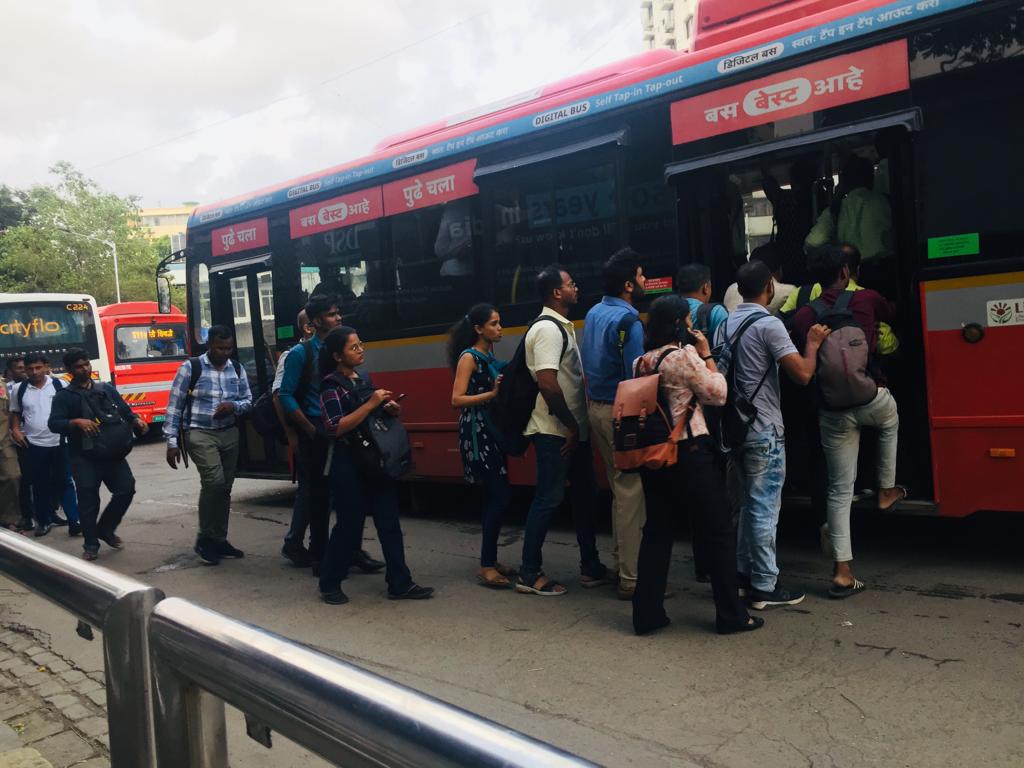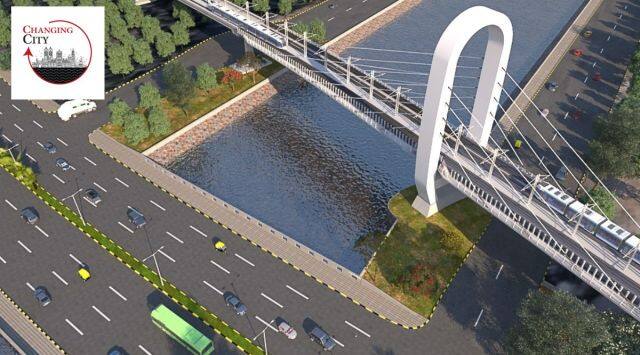“October Heat’ in Mumbai raises health concerns
Since the southwest monsoon left Mumbai on October 6, the city has experienced a swift return of hot weather, known as the ‘October heat’. This has led to a surge in illnesses like viral fever, dehydration, and heat stroke due to temperature fluctuations.
Civic, state and private hospitals have reported a surge in the number of people visiting outpatient departments in the past seven days. The India Meteorological Department recorded a high of 34.2°C on Thursday, three degrees above normal, raising concerns among doctors about the health effects of the heat.
Source: Free Press Journal
Highest number of violations for ticketless travel
Western Railways intensified its crackdown on ticketless travelers with a rigorous inspection at Borivali station. On October 11, as many as 4,166 commuters were penalised, marking the highest single-day record of such violations, surpassing the previous record held by CR’s Thane station. On October 9, Thane station saw 3,092 individuals apprehended, resulting in fines exceeding Rs 8.6 lakh.
The ticket-checking campaign on Western Railway commenced at Dadar on September 30, during which 1,647 cases of ticketless travel were detected, and Rs 4.22 lakh was collected in fines. Following this, similar operations were conducted at major stations such as Andheri, Bandra, Churchgate, and even on AC local trains.
Source: Times of India
Read more: Mumbai’s Monsoon 2023: Bountiful rains despite El Nino concerns
Multi-storey parking ahead of bus fleet expansion
The Brihanmumbai Electric Supply and Transport (BEST) Undertaking is strategising to construct multi-storey parking facilities within its depots to accommodate its expanding bus fleet. With plans to operate 10,000 electric buses by 2027, BEST is in the process of evaluating the feasibility of creating new parking facilities at three of its depots. Currently, these depots can hold 3,941 buses, but the proposed parking lots would nearly double the capacity. BEST has already initiated orders for 2,100 single-decker AC e-buses and issued tenders for an additional 2,400.
Source: Hindustan Times

Upcoming Shunya ’Zero’ Bridge in Mumbai
The Shunya Bridge in Mumbai, part of the upcoming Metro Line 2B, is more than just a structure. It is expected to protect the surrounding mangroves. It’s an essential component of Mumbai’s metro system, connecting DN Nagar to Mandale and passing over water bodies.
This bridge, spanning 130 meters, is a significant part of Metro Line 2B’s construction, which is over 55% complete and expected to partially open next year. The bridge reflects India’s contribution to mathematics with the invention of “zero.”
According to Dr. Sanjay Mukherjee, the MMRDA Commissioner, this iconic bridge symbolises the importance of “zero” in shaping human progress. In a global city like Mumbai, this structure is a reflection of India’s identity and its significant contributions to the world, added the official.
Source: Indian Express

Artificial ponds for Durga idol immersions
The Brihanmumbai Municipal Corporation (BMC) is preparing to create artificial ponds for the immersion of Durga idols during the Navratri festival. However, Member of Parliament Gopal Shetty has appealed to the state government and the BMC to explore options that would allow devotees to immerse their idols in natural water resources.
However, environmentalists in the city are opposing idol immersion in certain water bodies. They argue that such immersions can have detrimental effects on the environment. For instance, this year, environmentalists took a firm stance against the immersion of idols in Aarey’s water bodies. They pointed out that not only does this practice pollute natural resources but it can also negatively impact wildlife, particularly due to the loudspeakers used in the processions. Consequently, the Aarey Milk Colony did not permit Ganesh idol immersion in Aarey Talav during the Ganeshotsav festivities in September.
Source: Free Press Journal
(Compiled by Sherine Raj)